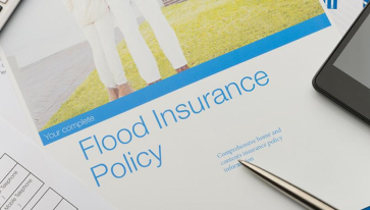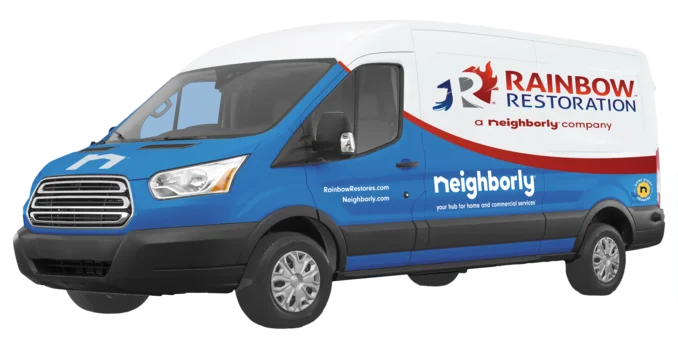
According to Rainbow Restoration, homeowners often wonder if their insurance covers hurricane damage. Here's how to check.
|
Unfortunately, there is no such thing as “hurricane insurance,” and most insurance doesn’t cover hurricane damage, so we’re here to share the best ways to make sure any hurricane damage sustained to your home or business is covered.
Read on to learn more about the basic policy protections you need.
What Does Basic Homeowners Insurance Cover?
Homeowners insurance covers a variety of items, including your home and belongings. A typical policy includes dwelling, other structures, personal property and liability. Depending on your policy, hurricane damage to these items could be covered, but it’s always recommended to talk with your insurer to be sure.
Here is a deeper dive into what each of these terms means:
- Dwelling
This coverage typically protects your home and helps pay for any damage that has come from fire, strong winds, hail, explosions, smoke damage and other items all based on your policy. Standard homeowners’ policies are “open perils” policies which mean that is the policy language does not exclude the damage, it will be covered. In most cases this means that damage from wind, rain and flying debris will be covered.
However, most “open perils” policies will exclude flood damage, which is likely during and after a hurricane. Make sure you know exactly which type of weather-related damage your insurance covers, as you may need supplemental insurance for hurricane-related damage, such as flood insurance.
- Liability
This helps pay for any injuries that have happened inside your home. These injuries could be to you, friends, family members or visitors.
- Other structures
While decks or attached garages are covered under a homeowners insurance dwelling policy, free standing structures, like a shed, fence or free-standing deck will not be covered.
- Personal property
This helps replace damaged items inside or outside your home and on your property, like carpet, furniture, clothing and electronics or items stored in a shed or garage.
Does Homeowners Insurance Cover Flooding?
Anyone familiar with hurricanes knows that one of the most common elements of these storms is flooding. Unfortunately, most basic homeowners insurance policies do not cover flooding. If you are a homeowner who lives in a hurricane- or flood-prone region, you are left to rely on a combination of standard homeowner’s insurance policies and additional insurance policies, such as flood insurance, to strike the right balance of coverage. The best way to make sure you have the coverage you need to protect against hurricane-caused flooding is to go through your policy and options with your insurer.
We recommend working with your local insurance agency to find the policies that are right for you and your household.
Does Homeowners Insurance Cover Wind Damage?
High wind is another hurricane-related natural disaster. Wind damage is often included in homeowners insurance policies. However, some policies, even from major carriers, do not cover wind damage. It’s important to review your policy to make sure wind damage is covered. Otherwise, you will need to secure additional insurance to protect your home from hurricane-related wind damage.
Other Insurance Considerations
- Temporary relocation or alternate living expense (ALE)
If there has been damage to your home that makes it unlivable, you may need to seek alternative housing. While many homeowners insurance policies include coverage for temporary relocation or alternative living expenses, these policies typically have strict requirements for use.
In many cases, the damaged home must be deemed uninhabitable. This is often determined by an insurance adjuster or a local building inspector and oftentimes means that the house is unsafe, lacks power, running water or is exposed to the elements.
If your policy does not cover temporary relocation, consider adding this to your policy. More than 10 percent of Texans affected by Hurricane Harvey were displaced, showing that temporary location in your insurance policy is important.
If your policy does include alternative living expense coverage and your home is sustained damage during a covered event, be sure to document the damage and contact your insurance agent immediately.
- Hurricane or “named storm” deductibles
Some insurance policies do have the opportunity to add hurricane or “named storm” coverage. This type of insurance is most often sought for commercial buildings or in gulf coast states with named storm laws. Named storm insurance means that policy holders are covered for damage sustained during a storm that receives a name from the U.S. National Weather Service, the U.S. National Hurricane Center or the U.S. National Oceanic and Atmosphere Administration.
Policy holders choosing to purchase named storm coverage pay a separate deductible to cover this type of damage that is normally higher in cost. If you’re looking to save some money when building your policy, adding on the coverage you need separately may be more cost effective.
Trust Rainbow Restoration for Disaster Restoration Services
If you need help recovering after any disaster, choose Rainbow Restoration. Our team offers water, wind, fire and storm damage restoration services to help get your home back to its pre-loss condition.
Call us now to speak with a member of our team. Our technicians are standing by 24/7 and ready to assist you and your household through your recovery.
Learn how to operate your generator, safely, with these tips rom Mr. Electric. Like Rainbow Restoration, Mr. Electric is a part of the Neighborly® community of trusted home services brands.
